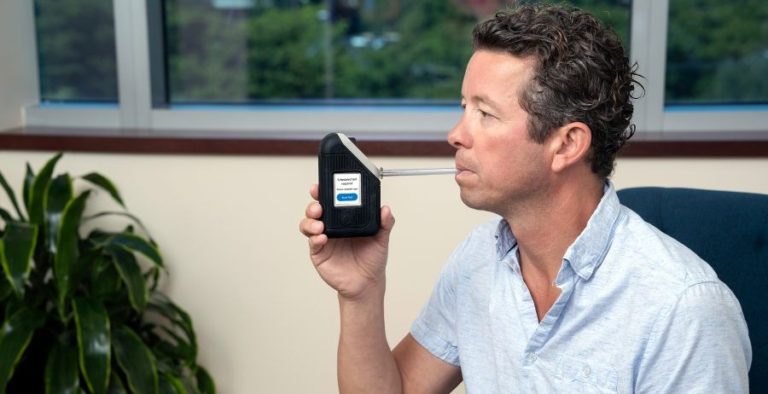The numbers tell a sobering story. The number of deaths caused by drunk driving has surged 23% according to a 2023 report, reversing a decade of progress in reducing alcohol-related fatalities. Even more concerning, about 80% of offenses leading to incarceration in the United States involve alcohol or drugs, including cases of domestic violence and impaired driving.
The economic impact is equally compelling. When adjusted for inflation, the total cost of drunk driving accidents in 2024 exceeded $71 billion. This figure doesn’t include the broader societal costs: broken families, lost productivity, and the strain on our healthcare and criminal justice systems. Beyond these statistics lies an opportunity to enhance preventative measures for repeat offenses. As our understanding of behavioral patterns grows, alcohol monitoring approaches continue to advance. Industry professionals and researchers are finding new ways to support lasting behavioral change, while strengthening accountability within our justice system.
Transdermal Sensors vs. Breathalyzers
When it comes to monitoring alcohol use, two common options—wearable sensors that measure alcohol through the skin (TAC) and handheld breathalyzers (BrAC)—are often compared for accuracy and practicality. While wearable TAC sensors offer a convenient way to track drinking over time, recent research led by Dr. Sarah L. Perry and colleagues at the University of Pittsburgh found that breathalyzers are considered the gold standard for reliable alcohol detection. Their review highlights that TAC devices, though promising and more advanced than ever, can sometimes lag behind or show less precise results compared to breathalyzer results, especially because of individual factors and technical limitations. For now, breathalyzers remain the trusted choice for precise and timely alcohol monitoring.
This ongoing reliance on BrAC is reinforced by recent research highlighting the accuracy of modern electronic breathalyzers.
Research that Reinforces the Accuracy of BrAC
A 2025 study published in the Open Access Library Journal found that electronic breathalyzer readings closely matched established alcohol detection methods, demonstrating their reliability in estimating blood alcohol content. As the reliability of these portable breathalyzers becomes clearer, policymakers are responding by weaving advanced alcohol monitoring into the fabric of the justice system.
Technology Use Rapidly Gains Legislative Support
Several states have recently expanded their alcohol monitoring requirements, recognizing the value of regular testing in their justice systems. North Carolina, for instance, has granted more flexibility in ordering alcohol testing as a condition for pretrial release or probation, acknowledging that consistent accountability drives behavioral change.
That’s why forward-looking monitoring solutions should be discreet, enabling individuals to maintain employment and family relationships, while ensuring accountability. This balance between oversight and dignity represents a crucial evolution in how to best address alcohol-related offenses.
From Research to Results: The Next Step in Remote Alcohol Testing
BI SoberTech™ stands out as the star player in the next generation of alcohol monitoring solutions. Unlike traditional bulky breathalyzers that can stigmatize users or interrupt daily routines, SoberTech is designed with real-world practicality in mind.
Industry reports, such as those from Business Wire, highlight how automated systems help supervising officers spend more time focusing on higher-risk individuals. SoberTech builds on these advances: its compact design enables individuals to submit BrAC tests discreetly while going about their daily lives—whether at work, school, or in the community.
An interactive touch screen interface and cellular connectivity eliminate the need for complicated testing procedures or manual reporting. For supervising agencies, integration with BI TotalAccess® means officers have near real-time access to test results and test location data, reducing administrative burden.
Enhanced Location Tracking for Greater Accountability
SoberTech collects a precise location point with every test, using GNSS, Wi-Fi, or cellular location point technology. This verification links each result to a specific place and time, supporting compliance with requirements like home detention or curfews. Wi-Fi triangulation acts as a backup if GPS is unavailable, reducing drift points. Together, these features ensure accurate monitoring while collecting only the data needed for program success.
Privacy, Dignity, and Better Sobriety Outcomes
According to a 2024 Federal Sentencing Report, programs that combine frequent testing with swift, certain, and fair responses to violations show particularly promising results. Alcohol monitoring solutions should provide accuracy and reliability as well as support dignity, privacy, and everyday life. By focusing on user discretion and convenience, these technologies help reduce stigma, encourage compliance, and support lasting change.
Key factors that improve compliance rates:
- Accessibility: Remote alcohol testing options that enable participants to test from home or work, while maintaining their daily responsibilities
- Clear scheduling: Regular testing times that can be integrated into daily routines
- Immediate feedback: Quick response systems that let clients know their compliance status
- Fair consequences: According to recent research, programs that use “swift, certain, and moderate sanctions” for violations tend to have better outcomes
What sets SoberTech apart is its client-centered approach—compact design, discreet operation, and features like biometric facial comparison and secondary location verification ensure both accuracy and privacy. For justice professionals, robust communication tools and real-time data make SoberTech a powerful, comprehensive solution. Clients benefit from discreet testing, flexibility, and court-admissible results that clearly show progress over time.
Learn More About BI SoberTech
If you’re a criminal justice professional or court administrator interested in learning more about how SoberTech can support your program’s success:
Download the fact sheet to explore full product specifications.
Schedule a product demo.

